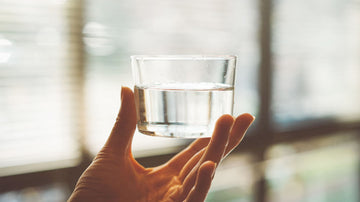
The effect of environmental influences on male fertility
Recently published studies make you sit up and take notice. As the Israeli researcher Hagai Levine from the Hebrew University-Hadassah reports in a review (published in Human Reproductive Update 2017), the number of live sperm per milliliter of semen has fallen by over 52% since 1973. In the man's ejaculate, the number has even fallen by over 59%. This significant decrease could be observed above all in the western world (Europe, North America). Outside of these regions, meaningful datasets are still missing. But what influence does the number of sperm have on fertility? According to the WHO, the reference value for infertility is a sperm count of 39 million per ejaculate or a concentration of 15 million sperm per milliliter of ejaculate. Fortunately, we are still a long way from that. Unfortunately, the negative trend is considered stable, which could mean that, according to the WHO definition, in a good 50 years the majority of men - at least in the western hemisphere - will be considered infertile. Hagai Levine says "Given the importance of sperm for male fertility and human health, this study is an urgent wake-up call for researchers and public health officials around the world."

What is the reason for the decrease in sperm count?
How does this drastic decrease in sperm count in men come about? The facts have not yet been definitively clarified, but there are some clues. professor dr Stefan Schlatt from the Westfälische Wilhelms-Universität Münster thinks "Something is happening in western industrialized nations that means that this sensitive organ, the testicles, can produce worse sperm." Lately there have been increasing signs that environmental influences play a major role could play. It seems that endocrine disruptors from pesticides, solvents, baby products, plastic bottles, plastic toys, cosmetic containers, etc., the acetylsalicylic acid in painkillers, a different hormone metabolism due to obesity or the abuse of hormones affect the sperm count.
Is there a way out of the misery?
Unfortunately, it cannot be assumed that the environmental impact of man-made pollution will decrease. Pesticides, hormones and medicines will continue to put a heavy strain on our food and water supply in the future. In a few countries, the authorities are only slowly beginning to react. For example, the German Federal Office of Public Health will implement strict guidelines for the use of plastics in contact with tap water from mid-2023 (KTW-BWGL regulation). The filter membrane patented by DrinkPure already meets these strict regulations.



